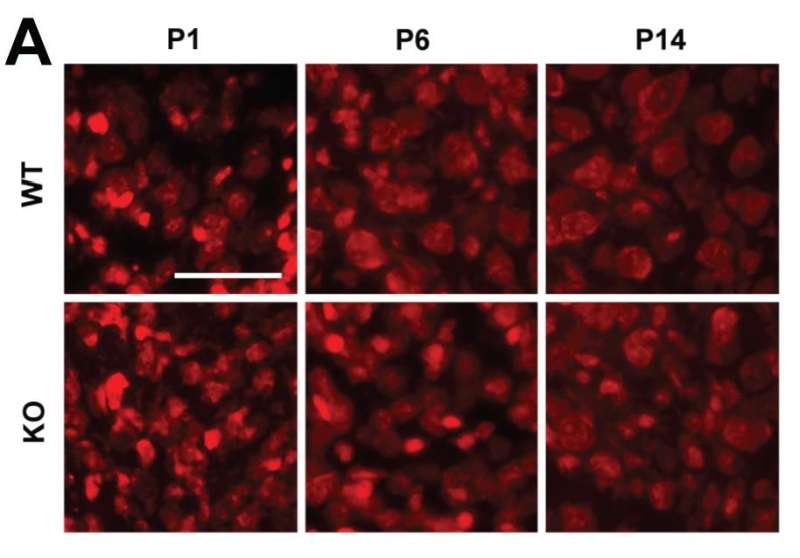Brainstem changes underlie sound sensitivity in fragile X mouse model

Developmental changes in the brainstem driven by fragile X syndrome (FXS)—a condition that often co-occurs with autism spectrum disorder in humans—may underlie the hypersensitivity to sound observed in both humans and a mouse model of the disorder, according to animal research published in eNeuro.
Sarah Rotschafer and Karina Cramer studied groups of sound-processing neurons in the brainstem of mice that are genetically altered to model FXS through reduced expression of the fragile X mental retardation protein (FMRP). The researchers found reduced cell sizes in FXS mice of different ages relative to mice with typical levels of FMRP.
These differences emerged in the studied cell groups at various stages of development, including very early on before the circuits supporting hearing have come online.
Despite FXS being more common in males than females, the authors did not observe any sex differences in the development of the brainstem.
These findings indicate a role for FMRP in the development of the auditory system, which is disrupted in this FXS mouse model.
More information: Developmental emergence of phenotypes in the auditory brainstem nuclei of Fmr1 knockout mice, eNeuro DOI: 10.1523/ENEURO.0264-17.2017



















